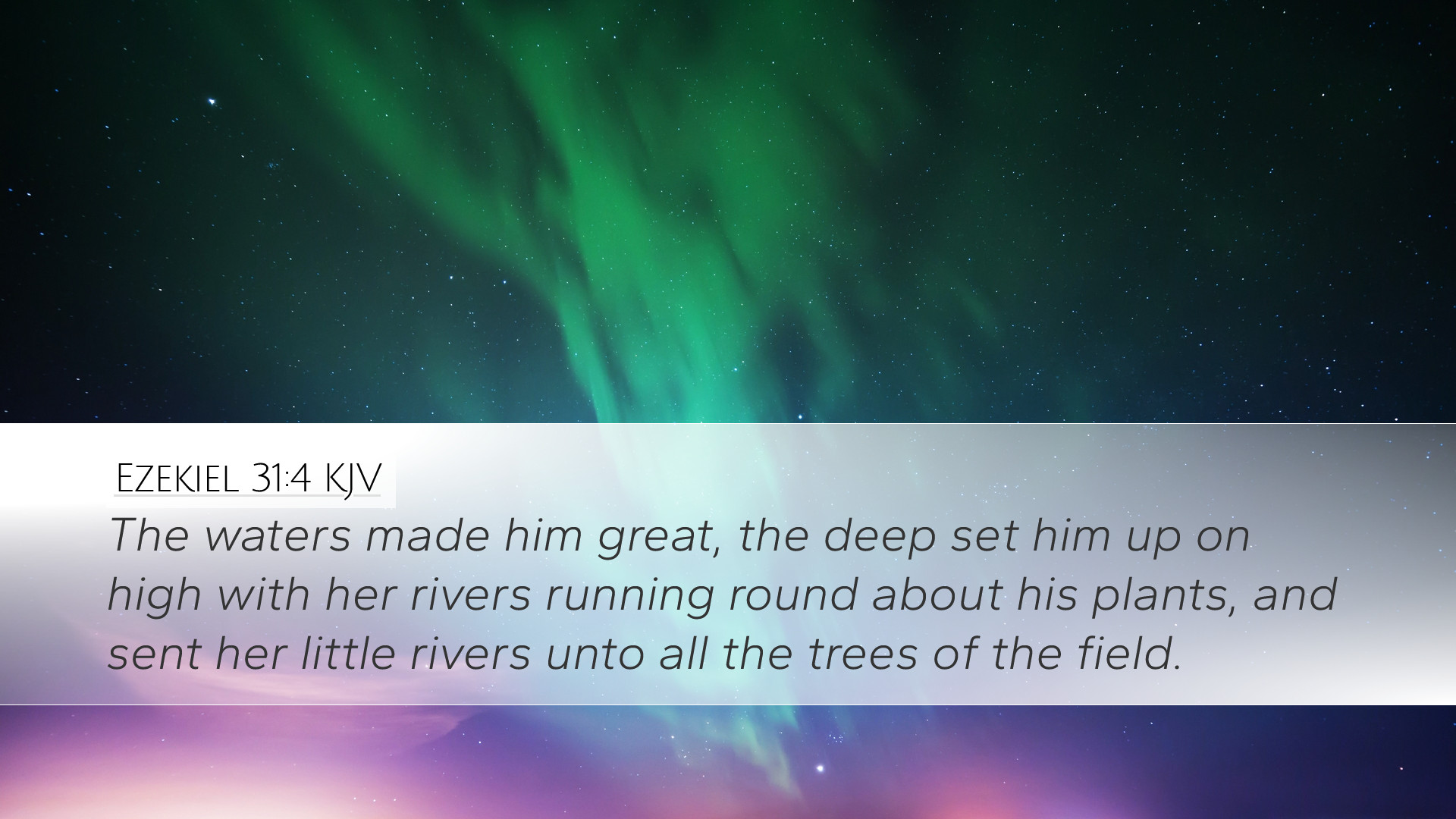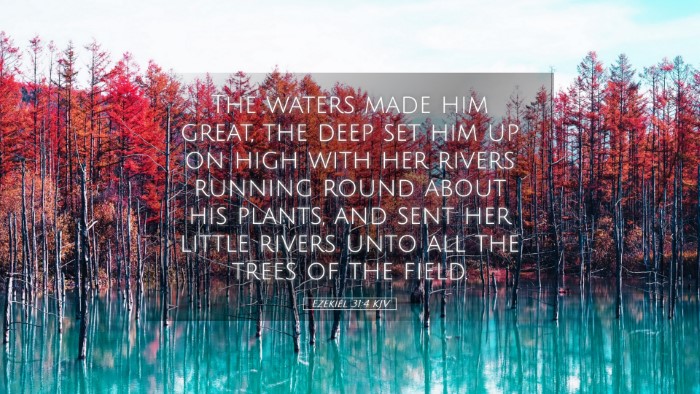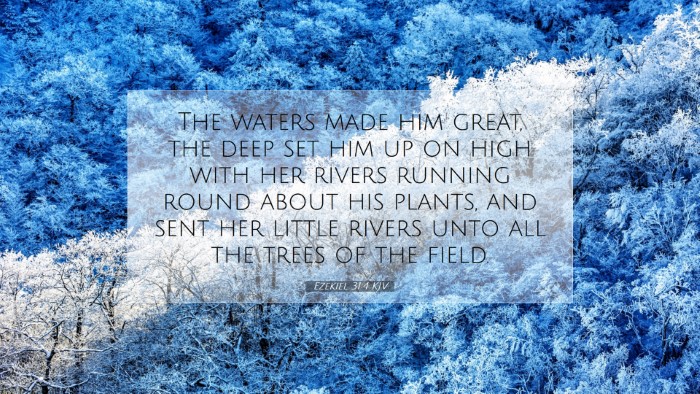Commentary on Ezekiel 31:4
Ezekiel 31:4: "The waters made it great, the deep set it up on high with her rivers running round about her; and sent out her little rivers unto all the trees of the field."
Introduction
This verse is situated within a larger prophetic message that uses the imagery of a great tree to symbolize the kingdom of Egypt and its eventual downfall. The verse emphasizes the prosperity and strength that Egypt had enjoyed, drawing a stark contrast to the judgment that would follow.
Contextual Overview
The book of Ezekiel is rich with prophetic symbolism and vivid imagery. Ezekiel, a prophet to the exiled Israelites, often utilized allegories to convey messages of warning, judgment, and hope. In this passage, the great tree represents the grandeur and power of Egypt, nourished by the abundance of its resources, represented by the waters.
Insights from Public Domain Commentaries
- Matthew Henry: Henry underscores the significance of the waters, coming from the deep, which metaphorically indicates the divine provision for Egypt's rise. The abundance of waters suggests that it was not merely by human effort but through God's providential care that Egypt flourished.
- Albert Barnes: Barnes notes that the rivers surrounding the great tree symbolize the surrounding nations and the various sources of strength Egypt perceived itself to possess. This alludes to how Egypt's connections made it formidable, yet he foreshadows the impending doom due to its arrogance and idolatry.
- Adam Clarke: Clarke elaborates that the description of the rivers and waters represents various influences that contributed to Egypt's greatness, emphasizing both natural resources and military might. However, he warns of the fleeting nature of such glory, as the chapter progresses into descriptions of judgment and desolation.
Thematic Elements
- Symbolism of Waters: The waters signify spiritual illumination and understanding, as well as material prosperity. The abundance of waters signifies a blessing, yet within the context, it underscores an eventual downfall.
- Divine Sovereignty: The imagery illustrates God's sovereign hand in the rise and fall of nations. Even those that appear powerful and full of resources are ultimately under God's authority and can be humbled at His decree.
- Warning to Nations: This passage serves as a warning to all nations that trust in their might and resources rather than in God. The prosperity enjoyed is granted by divine providence, and neglecting God leads to judgment.
- Hope in Judgment: While the chapter speaks of judgment, it is also a reminder that humility before God reminds nations of their dependency on Him, providing a pathway for restoration.
Application for Pastoral Ministry
For pastors and ministry leaders, this passage serves as a profound reminder of the dangers of pride and self-sufficiency in both personal and communal contexts. It encourages a posture of humility and reliance upon God's provision, particularly in moments of prosperity.
Additionally, the congregation can be guided to understand the importance of maintaining spiritual health and dependence on God even during times of abundance, drawing lessons from the symbol of the great tree nourished by waters yet eventually facing divine judgment.
Reflection for Students and Scholars
The theological depth presented in Ezekiel 31:4 invites scholars to explore the implications of power, pride, and divine retribution in biblical narratives. As they undertake their studies, the integration of historical and literary context will reveal the richness of prophetic literature and its relevance for contemporary society.
This verse further opens discussions surrounding the nature of God's interactions with nations and civilizations throughout history, prompting inquiries into how similar dynamics may be observed today.
Conclusion
Ezekiel 31:4 acts as a poignant reminder of the transient nature of worldly power and the inevitable sovereignty of God over all creation. The imagery of the great tree nourished by the waters serves to illustrate deeper spiritual and theological truths that are relevant for individuals, communities, and nations alike.
As we reflect on this passage, may we be compelled to recognize our dependency upon God, seeking to root ourselves in His truth rather than the fleeting strength of our resources or achievements.


